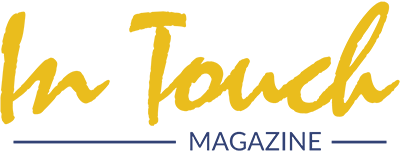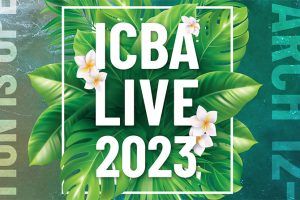The Consumer Financial Protection Bureau (CFPB) has issued guidance about two junk fee practices that are likely unfair and unlawful under existing law. The first is surprise overdraft fees, including overdraft fees charged when consumers had enough money in their account to cover a debit charge at the time the bank authorizes it. The second is the practice of indiscriminately charging depositor fees to every person who deposits a check that bounces. The penalty is an unexpected shock to depositors who thought they were increasing their funds.
The CFPB states that these overdraft and depositor fees likely violate the Consumer Financial Protection Act prohibition on unfair practices when consumers cannot reasonably avoid them. This Consumer Financial Protection Circular on surprise overdraft fees and the CFPB’s compliance bulletin on surprise depositor fees lay out when a financial institution’s back-end penalties likely break the law.
Surprise Overdraft Fees
An overdraft fee can become a surprise fee, according to the CFPB, when the customer does not reasonably expect their actions to incur an overdraft fee. For instance, even if a person closely monitors their account balances and carefully manages their spending to avoid overdraft fees, they can easily incur penalties when financial institutions employ processes that are unintelligible or manipulative.
This latest Consumer Financial Protection Circular explains that when financial institutions charge surprise overdraft fees, sometimes as much as $36, they may be breaking the law. The circular provides some examples of potentially unlawful surprise overdraft fees, including charging penalties on purchases made with a positive balance. These overdraft fees occur when a bank displays that a customer has sufficient available funds to complete a debit card purchase at the time of the transaction, but the consumer is later charged an overdraft fee. Often, the financial institution relies on complex back-office practices to justify charging the fee. For instance, after the bank allows one debit card transaction when there is sufficient money in the account, it nonetheless charges a fee on that transaction later because of intervening transactions that depleted account funds.
In September 2022, the CFPB took action against Regions Bank for charging surprise overdraft fees known as authorized positive fees. As early as 2015, the CFPB, as well as other federal regulators including the Federal Reserve, began cautioning financial institutions against charging certain types of authorized positive fees, such as the ones used by Regions to unlawfully penalize customers. Regions is required to, among other consequences, reimburse consumers all the funds it unlawfully charged since August 2018 (estimated at around $141 million) and pay a $50 million penalty.
Surprise Depositor Fees
When a consumer deposits a check that bounces, banks sometimes charge a fee to the depositor, usually in the range of $10 to $19. However, a person trying to deposit a check has no idea or control over whether the check will clear, and sometimes that person is the victim of check fraud. In fact, there are many reasons deposited checks can bounce, and the most common reason is that the check originator does not have enough money available in their account. Charging a fee to the depositor penalizes the person who could not anticipate the check would bounce while doing nothing to deter the originator from writing bad checks.
The CFPB bulletin explains that indiscriminately charging these depositor fees, regardless of circumstances, likely violates the Consumer Financial Protection Act. Financial institutions can generally stay on the right side of the law, according to the CFPB, when they employ more tailored fee policies that charge depositor fees only in situations where a depositor could have avoided the fee, such as when a depositor repeatedly deposits bad checks from the same originator.
Junk Fee Initiative
The CFPB notes that this Consumer Financial Protection Circular on surprise overdraft fees and the agency’s bulletin on surprise deposited item fees are just the latest announcements as part of its junk fee initiative, one of many efforts across the federal government to increase competition and reduce unnecessary financial burdens on American families.
In January 2022, the CFPB launched an initiative to scrutinize back-end junk fees that cost Americans billions of dollars. Tens of thousands of people responded to a CFPB Request for Information with their stories and complaints about unnecessary fees in banking. Since then, the CFPB has taken action to constrain “pay-to-pay” fees and has announced a rulemaking proceeding on credit card late fees. In the last year, the CFPB has also published several research reports on overdraft fees and an analysis of college banking products.
The CFPB has observed that financial institutions have started to compete more when it comes to fees. Earlier this year multiple banks announced they were eliminating overdraft fees or updating their policies to be more consumer friendly. And in recent months, multiple large banks announced that they are eliminating non-sufficient fund fees on their checking accounts. The CFPB estimates that these changes mean $3 billion in savings for consumers.
William J. Showalter can be reached at (330) 678-0524 or wshowalter@younginc.com.
Resources
Consumer Financial Protection Circular 2022-06, Unanticipated overdraft fee assessment practices, may be downloaded at
https://files.consumerfinance.gov/f/documents/cfpb_unanticipated-overdraft-fee-assessment-practices_circular_2022-10.pdf.
CFPB Bulletin 2022-06, Unfair Returned Deposited Item Fee Assessment Practices, is available at
https://files.consumerfinance.gov/f/documents/cfpb_returned-deposited-item-fee-assessment-practice_compliance-bulletin_2022-10.pdf.
More information about the CFPB’s work on junk fees may be found at https://www.consumerfinance.gov/rules-policy/junk-fees/.








